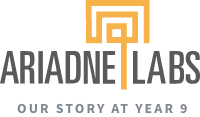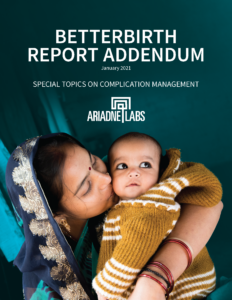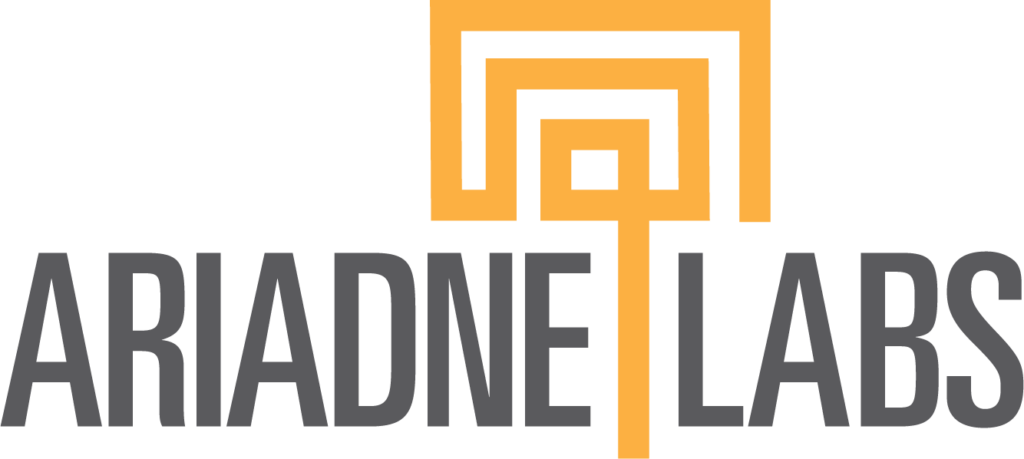The systems that deliver health care have a dramatic effect on the outcomes of care. While a clinician may have all of the skills and knowledge needed to deliver care in a safe and effective way, gaps in safety and integration at the team or system level can undermine that care. Innovation in this space seeks to close these gaps to create systems that support quality care at all levels, for all patients.
FOSTERING SAFE CARE THROUGH AMBULATORY SAFETY NETS
Gaps in communication and integration can lead to delays and errors in cancer diagnoses, with devastating effects for patients and families. Ambulatory safety nets close these gaps by efficiently identifying patients in need of follow-up after routine cancer screenings. While breakthroughs in cancer treatment improve patient care, safety nets provide the follow-through innovation to help patients get timely access to care.
In July of 2021, Ariadne Labs and CRICO, a regional malpractice insurer, convened a working group of CRICO member organizations and patient representatives to develop recommendations on how health systems can effectively implement these life-saving programs in the context of colorectal cancer screening. Using the group’s collective expertise, they identified 14 core components for developing and implementing a colorectal cancer ambulatory safety net, and produced a guide detailing recommendations for success.
![]() Featured Publication
Featured Publication
Developing and Implementing a Colorectal Cancer Ambulatory Safety Net →
BETTERBIRTH
The BetterBirth Program is focused on ensuring better health and wellbeing for women, newborns, and infants by improving quality of care, minimizing birth complications, and ending preventable deaths. The program works to address safety and integration gaps across the ecosystem of maternal, newborn, and infant health, recognizing that all components of a system must work in tandem to support the best possible care for every patient.
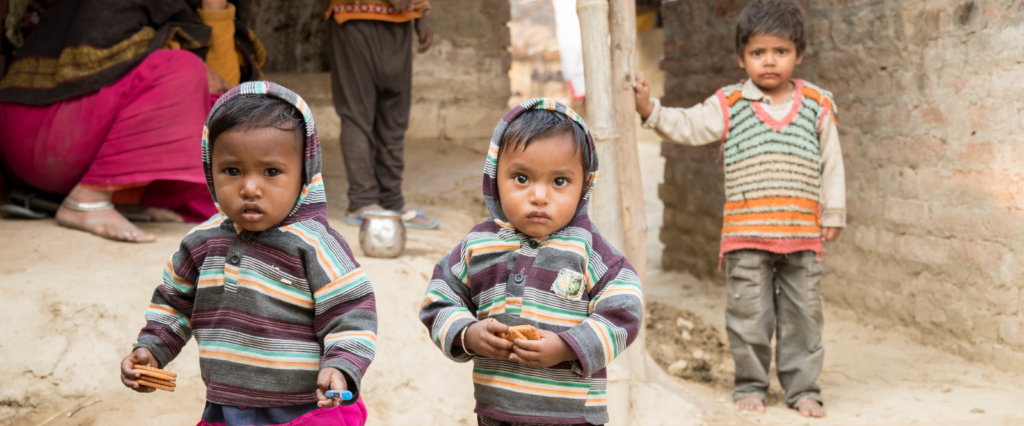
BETTERBIRTH
IMPROVING OUTCOMES FOR LOW BIRTHWEIGHT INFANTS
![]() Featured Publication
Featured Publication
The Low Birthweight Feeding Exploration (LIFE) study examines infant feeding and health outcomes of moderately low birthweight infants in the first two years of life in India, Malawi, and Tanzania to identify data-driven recommendations for optimal feeding interventions to allow those most vulnerable to survive and thrive.
In 2021, the LIFE study team presented key findings at the International Society for Research in Human Milk and Lactation, the Pre-Term Birth Dialogues, and the American Academy of Pediatrics conferences.
BETTERBIRTH
BUILDING ON THE BETTERBIRTH TRIAL: CHILDBIRTH COMPLICATIONS & OUTCOMES
The 2019 BetterBirth Report highlighted how gaps in integration of services contribute to breakdowns in the quality and safety of care. In 2021 the BetterBirth team re-examined data from the initial trial through the lens of newborn and complication management and released their findings in an addendum to the report.
The addendum unpacks the complexity of five life-saving, facility-based interventions: Referral, cesarean deliveries, antibiotic use, neonatal resuscitation, and oxytocin administration. It highlights findings on processes and health outcomes and provides actionable recommendations to help ensure quality management of complications at frontline facilities.
BETTERBIRTH
MOMENTUM
SUPPORTING SCALE OF HIGH-IMPACT MATERNAL, NEWBORN, AND CHILD HEALTH INTERVENTIONS
MOMENTUM is a suite of USAID projects that build capacity in low- and middle-income countries to identify and scale up high-impact maternal, neonatal, and child health interventions. Ariadne Labs joins the Population Reference Bureau (PRB) and JSI Research and Training Institute, Inc. to support the full suite of MOMENTUM projects in building on existing evidence and best practices, introducing new ideas and approaches, and facilitating adaptive learning and management of interventions to improve the health of women and children.
ADAPTIVE LEARNING GUIDE
In 2021, Ariadne Labs finalized an Adaptive Learning Guide that offers information and resources to integrate adaptive learning into the design, implementation, and improvements of global health programs and provides real-world examples of how adaptive learning can drive continuous learning and improvement in project work. The guide has been a top-downloaded resource on the internal MOMENTUM hub page with nearly 400 downloads.
CONTEXT ASSESSMENT
Under MOMENTUM, Ariadne Labs is testing its context assessment toolkit intended for use by a range of health care facilities looking to implement a change to a clinical practice or process. The toolkit includes surveys from the Atlas Initiative as well as a conversation and interview guide for global settings developed by the BetterBirth Program team. The toolkit is currently being tested with Lifebox’s Clean Cut surgical infection prevention program in Ethiopia, and with MOMENTUM efforts in Indonesia to address preventable maternal deaths.
MAKLAB TECHNICAL SUPPORT
Ariadne Labs also leads MAKLab, a technical support service open to all MOMENTUM member organizations. Through the MAKLab, partners can seek expertise in measurement, adaptive learning, and designing, testing, and spreading solutions within and beyond MOMENTUM.
BETTERBIRTH
BUILDING AN ENABLING ENVIRONMENT FOR MIDWIVES
Beyond supporting women in childbirth, midwives play a key role in closing integration and safety gaps by delivering accessible, equitable, and high-quality sexual, reproductive, maternal, newborn, and adolescent health care in diverse settings across the globe.
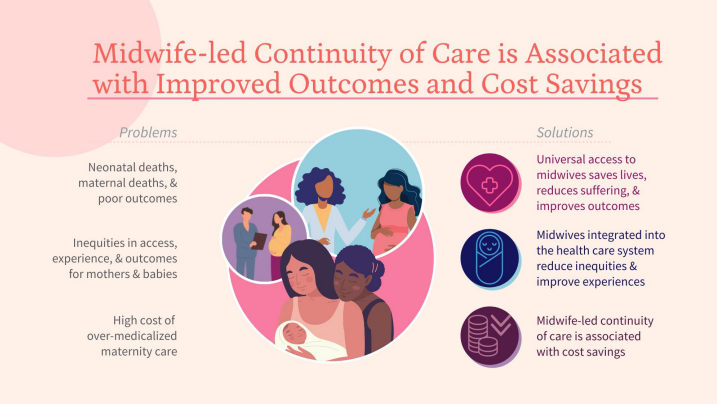
In 2021, Ariadne Labs’ BetterBirth Program and Delivery Decisions Initiative teams co-developed a policy brief, released by the International Confederation of Midwives (ICM) in 2021, to define the enabling environment for midwives and identify the necessary policies to enhance the enabling environment for scaling midwife-led care.
BETTERBIRTH
SUPPORTING WHO SAFE CHILDBIRTH CHECKLIST IMPLEMENTATION
The BetterBirth team manages the Safe Childbirth Checklist Community of Practice, an online forum for WHO Safe Childbirth Checklist users to share their experiences and access implementation support resources. The community is hosted on Ariadne Labs’ Aria platform and has expanded by nearly 400 participants since July 2021.
In 2021, the BetterBirth team held six webinars for members of the Community of Practice, all focused on implementation of the Checklist. The series, which attracted nearly 500 participants from 20 countries, culminated in a World Patient Safety Day event in partnership with the WHO. Webinar topics included problem-solving for checklist implementation in the public and private sectors, global lessons in checklist adaptation, and overcoming COVID-19 challenges in maternal-newborn health. Each webinar was followed by a web-based discussion to continue the conversation. Join the Community of Practice to access the webinar recordings.
REDUCING STILLBIRTH IN THE US
Stillbirth affects about 1 in 160 births in the U.S., and Black women are more than twice as likely to experience stillbirth compared to non-Hispanic White women. Ariadne Labs has collaborated with the Star Legacy Foundation to adapt best practices from the National Health Service (NHS) in the United Kingdom to close safety gaps in prenatal care to reduce the risk of stillbirth.
In England and Scotland, maternal and neonatal protocols employed by the NHS have reduced the stillbirth rate by over 20 percent. In spring of 2021, Ariadne Labs and the Star Legacy Foundation began adapting the NHS England’s “Saving Babies’ Lives Care Bundle” into a set of clinical protocols and decision aids appropriate for a U.S. context. At the heart of this work is the belief that many stillbirths can be prevented by effective innovations that address safety gaps in prenatal care.
“Stillbirths remain a little-understood outcome, but the impact on families is immense. There is evidence that we can reduce the number of stillbirths” – Francine Maloney, MPH, Assistant Director for the Implementation Platform at Ariadne Labs
SAFE SURGERY / SAFE SYSTEMS
Despite advances in medical care, surgery still presents a significant risk of patient harm, much of which can be avoided when surgical teams follow proven patient safety practices to reduce errors. The Safe Surgery/Safe Systems team works to create tools that support hospital-based teams in achieving peak performance and minimizing patient risk.
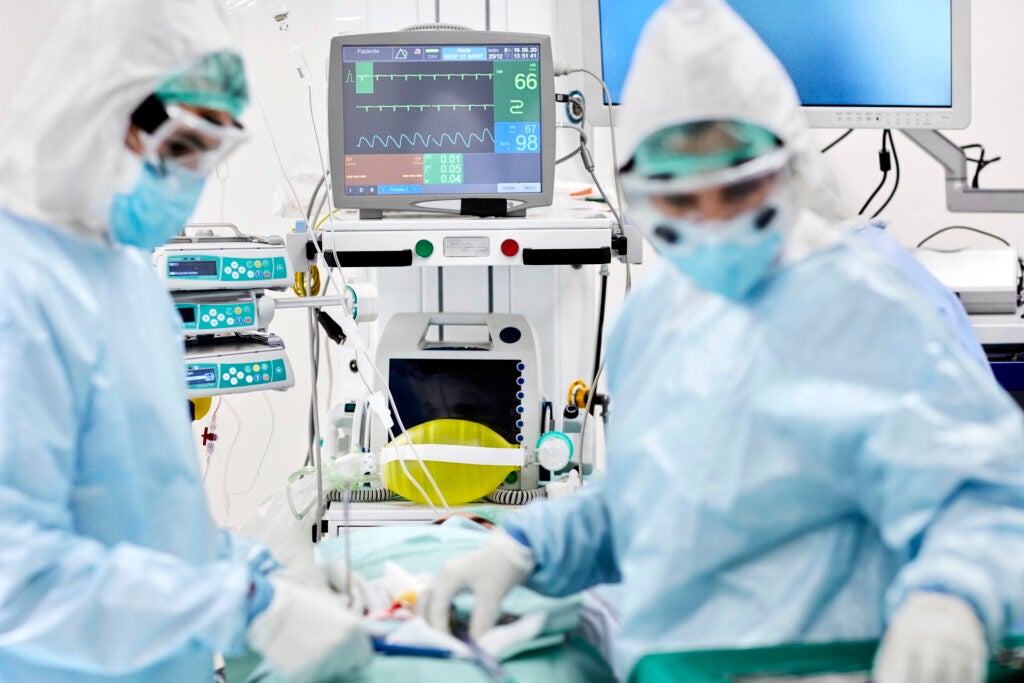
SAFE SURGERY / SAFE SYSTEMS
RIGHT CARE, RIGHT PLACE, RIGHT TIME IN MAINE
![]() Featured Report
Featured Report
In 2021 Ariadne Labs collaborated with the Schmidt Institute in Bangor, Maine, with funding by the Maine Health Access Foundation, to produce a report on access to health care services in rural Maine. The research team conducted 46 interviews with frontline medical, dental, nursing, EMS, behavioral health, long-term care, tribal health, and patient and community groups in Washington County, Maine. Researchers aimed to identify systemic constraints that affected Washington County residents’ ability to access and use health and social services, and to understand what factors would have the greatest impact in removing barriers. Across all provider settings, there was a consensus that access to mental health care, transportation, and emergency services were the county’s most significant challenges. Interviewees pointed to key opportunities to improve health access, including reducing bottlenecks within the system, improving access to behavioral health care, revising funding and payment rules, and increasing collaboration and resource-sharing across institutions. The team is currently developing a funding proposal to support a county-wide collaborative that would create an integrated transportation and mental health services program in Washington County.
SAFE SURGERY / SAFE SYSTEMS
APPLYING MOBILE HEALTH TECHNOLOGIES TO SURGICAL CARE
With increasingly fragile patients discharged home earlier after surgery, understanding recovery trajectories and supporting care at home is critical in ensuring the best patient outcomes. HealthPrism uses digital phenotyping, or moment-by-moment data collection from digital devices, to shed light on patients’ physical and mental health following surgery and to gain insight into the patient experience. In a 2021 study the Safe Surgery team found significant differences between the quality of life that patients expected after surgery and what they experienced, signaling a need for improving shared decision-making.
As the team moves forward in developing mobile health strategies to support surgical recovery at home, they also developed a separate publication exploring perceptions among surgeons of the application of mobile health technologies to surgical practice. This study has the potential to inform effective and equitable implementation of these technologies to better support patients and surgical teams.
SAFE SURGERY / SAFE SYSTEMS
ASSESSING NON-TECHNICAL SKILLS IN THE OPERATING ROOM
Ariadne Labs’ Safe Surgery/Safe Systems Program continues to improve our understanding of how to assess and teach non-technical skills critical for improving surgeons’ decision-making, teamwork, and communication and has worked to develop knowledge to help apply understanding to practice. The Safe Surgery /Safe Systems team published their experiences in two research articles this year: one examining how assessment of these skills can be taught in a virtual format, and the other assessing the presence of non-technical skills based on level of training. This work forms an important part of Ariadne’s ongoing work to improve team performance through team training and coaching.
SAFE SURGERY / SAFE SYSTEMS
EMPOWERING SURGEONS TO PURSUE CONTINUOUS IMPROVEMENT
Ariadne Labs developed the Surgical Coaching for Operative Performance (SCOPE) Program to enable every surgeon to pursue surgical excellence through continuous professional development and performance improvement. As the SCOPE program has spread and new centers have adopted SCOPE, the team at Ariadne has continued to study how to best implement surgical coaching programs through optimizing coach-coachee relationships and facilitating productive coaching relationships.
SAFE SURGERY / SAFE SYSTEMS
EXPLORING THE IMPACT OF THE WHO SURGICAL SAFETY CHECKLIST
The team continues to leverage the power of the WHO Surgical Safety Checklist to optimize the performance of surgical teams. A 2021 study published in the Annals of Surgery assessing surgical teams’ attitudes about the Checklist found that while the Checklist is perceived to enhance patient safety, not all surgical team members actively engage in its use, highlighting a need for more training on the Checklist and supporting a strategy to revisit the checklist so it can best address the current needs of surgical systems. The Safe Surgery team and colleagues also conducted a meta-analysis, the findings of which can help teams understand what parts of the Checklist are working, what improvements can be made, and whether it is achieving its intended effect. This work has provided the foundation for ongoing work in Singapore and Canada to revitalize the checklist and improve surgical safety and teamwork.
This team’s work has continued to explore and build on the responsiveness of the WHO Surgical Safety Checklist, highlighting its potential role in responding to emerging critical events, including COVID-19.

“The Checklist was designed to be a living tool capable of evolution. It can do more than what it is currently accomplishing in most settings. Our international team is piloting a toolkit that will help centers get the most out of their checklist by modifying it to their needs, and train them to use it in an efficient and effective way.”

